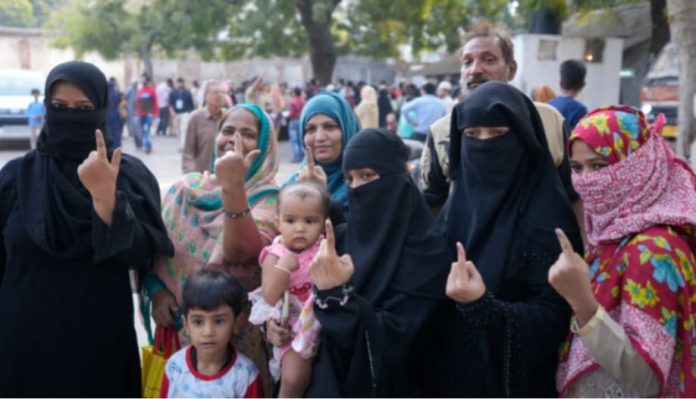4 April 2024
In the forthcoming 2024 elections, North Indian Muslims, excluding Uttar Pradesh and Bihar, are poised to play a pivotal role in shaping the political landscape across the region’s diverse states and Union Territories. With a keen eye on denting the electoral dominance of the Bharatiya Janata Party (BJP), Muslim communities are navigating complex political dynamics and forging strategic alliances to assert their influence.
Ladakh: In Ladakh, where Muslims constitute 46% of the population, the BJP’s grip on the lone Lok Sabha seat is poised to weaken. Discontent among Buddhists over the BJP’s governance and the potential alliance between Muslims and Buddhists could sway electoral outcomes, with the BJP facing an uphill battle to retain its stronghold.
Jammu and Kashmir: Despite the BJP’s historic dominance in Jammu and Kashmir, recent developments, including the abrogation of Article 370, have unsettled traditional political equations. The disenchantment with BJP rule, particularly in the Jammu division, presents an opportunity for Muslim voters to influence outcomes, potentially altering the BJP’s electoral fortunes.
Punjab: In Punjab, where Sikhs form the majority, shifting political dynamics have redefined electoral equations. The fallout from the farmers’ agitation and fractures within the BJP-Shiromani Akali Dal alliance have opened avenues for the Aam Aadmi Party (AAP) and Congress to challenge BJP hegemony. Muslim voters, aligned with regional parties, could sway outcomes, signaling a potential shift away from BJP-affiliated alliances.
Haryana: In Haryana, where the BJP swept all 10 Lok Sabha seats in 2019, the political landscape is undergoing transformation. The farmers’ agitation and dissatisfaction with BJP governance have created openings for regional players like the AAP and Indian National Lok Dal (INLD) to gain ground. Muslim voters, constituting 7.03% of the population, are poised to influence outcomes, potentially reshaping the electoral landscape.
Himachal Pradesh: Despite being a minority, Muslim voters in Himachal Pradesh hold the potential to impact electoral outcomes, particularly amid growing anti-incumbency sentiments. Their support for the Congress could challenge the BJP’s dominance, signaling a potential upset in the BJP stronghold.
Uttarakhand: In Uttarakhand, where communal tensions run high under BJP rule, Muslim voters are mobilizing to challenge BJP dominance. With concerted efforts to consolidate support behind the Congress, Muslims could emerge as a decisive electoral force, challenging the BJP’s hold on power.
Delhi: In the national capital, where the BJP swept all seven Lok Sabha seats in 2019, Muslim voters are poised to challenge BJP supremacy. With strategic voting and support for opposition parties like the Congress, Muslim communities could alter electoral outcomes, potentially denting the BJP’s dominance.
Conclusion: As North Indian Muslims navigate complex political landscapes, their strategic voting and alliances have the potential to reshape electoral outcomes and challenge BJP hegemony. With concerted efforts to mobilize support and forge alliances, Muslim communities are poised to play a decisive role in the 2024 elections, potentially altering the political trajectory of the region.




